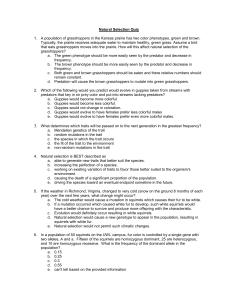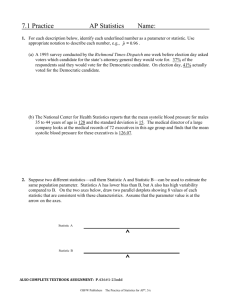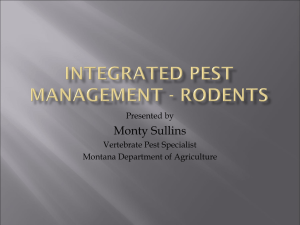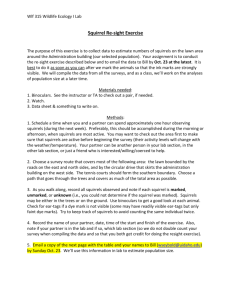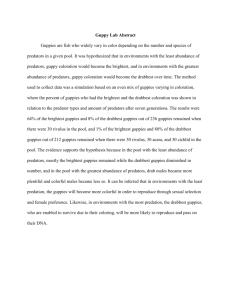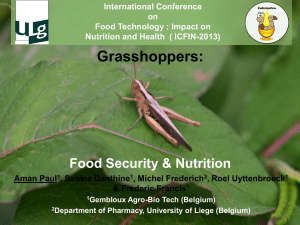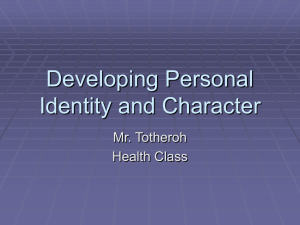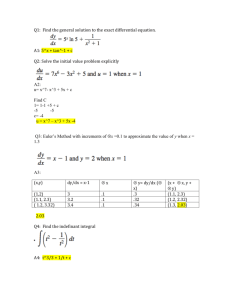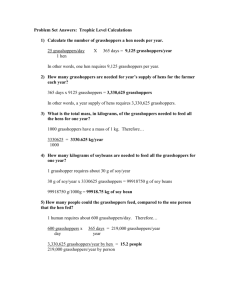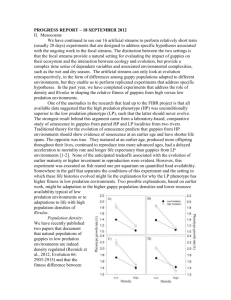Natural Selection Quiz
advertisement
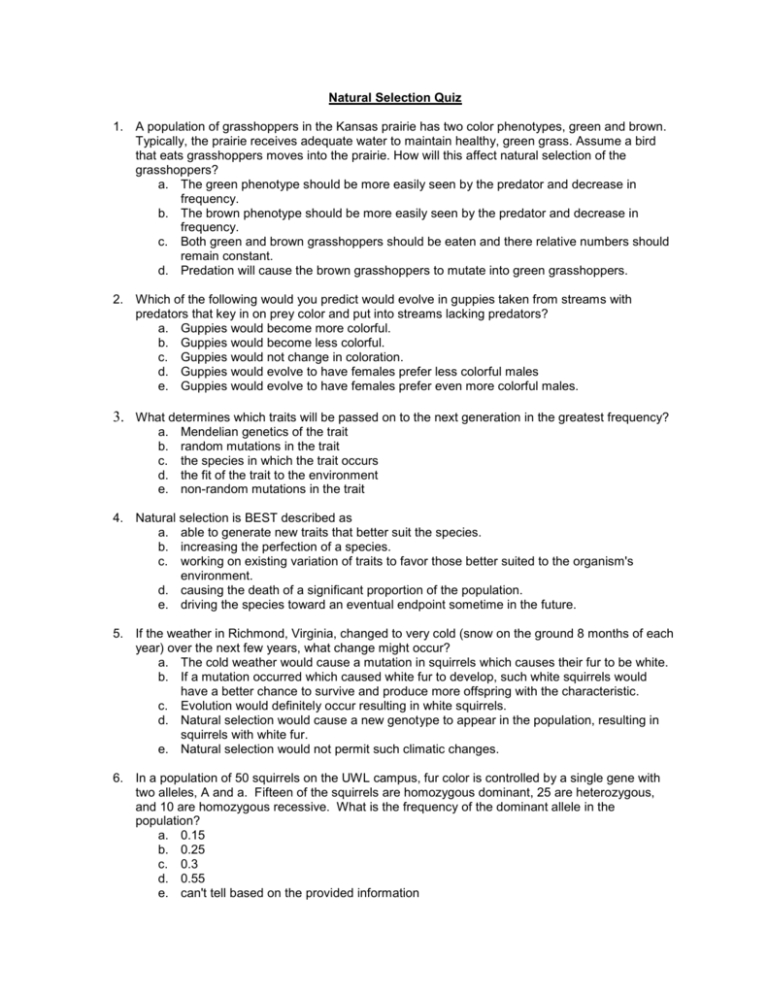
Natural Selection Quiz 1. A population of grasshoppers in the Kansas prairie has two color phenotypes, green and brown. Typically, the prairie receives adequate water to maintain healthy, green grass. Assume a bird that eats grasshoppers moves into the prairie. How will this affect natural selection of the grasshoppers? a. The green phenotype should be more easily seen by the predator and decrease in frequency. b. The brown phenotype should be more easily seen by the predator and decrease in frequency. c. Both green and brown grasshoppers should be eaten and there relative numbers should remain constant. d. Predation will cause the brown grasshoppers to mutate into green grasshoppers. 2. Which of the following would you predict would evolve in guppies taken from streams with predators that key in on prey color and put into streams lacking predators? a. Guppies would become more colorful. b. Guppies would become less colorful. c. Guppies would not change in coloration. d. Guppies would evolve to have females prefer less colorful males e. Guppies would evolve to have females prefer even more colorful males. 3. What determines which traits will be passed on to the next generation in the greatest frequency? a. b. c. d. e. Mendelian genetics of the trait random mutations in the trait the species in which the trait occurs the fit of the trait to the environment non-random mutations in the trait 4. Natural selection is BEST described as a. able to generate new traits that better suit the species. b. increasing the perfection of a species. c. working on existing variation of traits to favor those better suited to the organism's environment. d. causing the death of a significant proportion of the population. e. driving the species toward an eventual endpoint sometime in the future. 5. If the weather in Richmond, Virginia, changed to very cold (snow on the ground 8 months of each year) over the next few years, what change might occur? a. The cold weather would cause a mutation in squirrels which causes their fur to be white. b. If a mutation occurred which caused white fur to develop, such white squirrels would have a better chance to survive and produce more offspring with the characteristic. c. Evolution would definitely occur resulting in white squirrels. d. Natural selection would cause a new genotype to appear in the population, resulting in squirrels with white fur. e. Natural selection would not permit such climatic changes. 6. In a population of 50 squirrels on the UWL campus, fur color is controlled by a single gene with two alleles, A and a. Fifteen of the squirrels are homozygous dominant, 25 are heterozygous, and 10 are homozygous recessive. What is the frequency of the dominant allele in the population? a. 0.15 b. 0.25 c. 0.3 d. 0.55 e. can't tell based on the provided information 7. Which of the following is NOT an example of natural selection? a. Plants with thorns are less likely to be eaten by herbivores than other members of the same species that lack thorns. b. Bacterial populations in hospitals develop resistance to drugs used to combat infection by them. c. Scientists breed cows that give greater amounts of milk than their ancestors. d. Fruit fly larvae with an enzyme to break down alcohol are better able to feed on fermenting fruit than those that lack the enzyme. e. Female fish that produce more eggs leave more offspring than those that produce fewer eggs. 8. Which of these actually evolves? a. individuals b. populations c. communities d. mutations 9. Evolution is a. a rare event. b. currently occurring ONLY in scientific laboratories. c. constantly occurring at the same rate in ALL organisms. d. a process that occurs as a result of differences in reproductive fitness. e. a process that occurred only in the past. Answers 1. 2. 3. 4. 5. 6. 7. 8. 9. b a d c b d c b a
